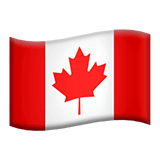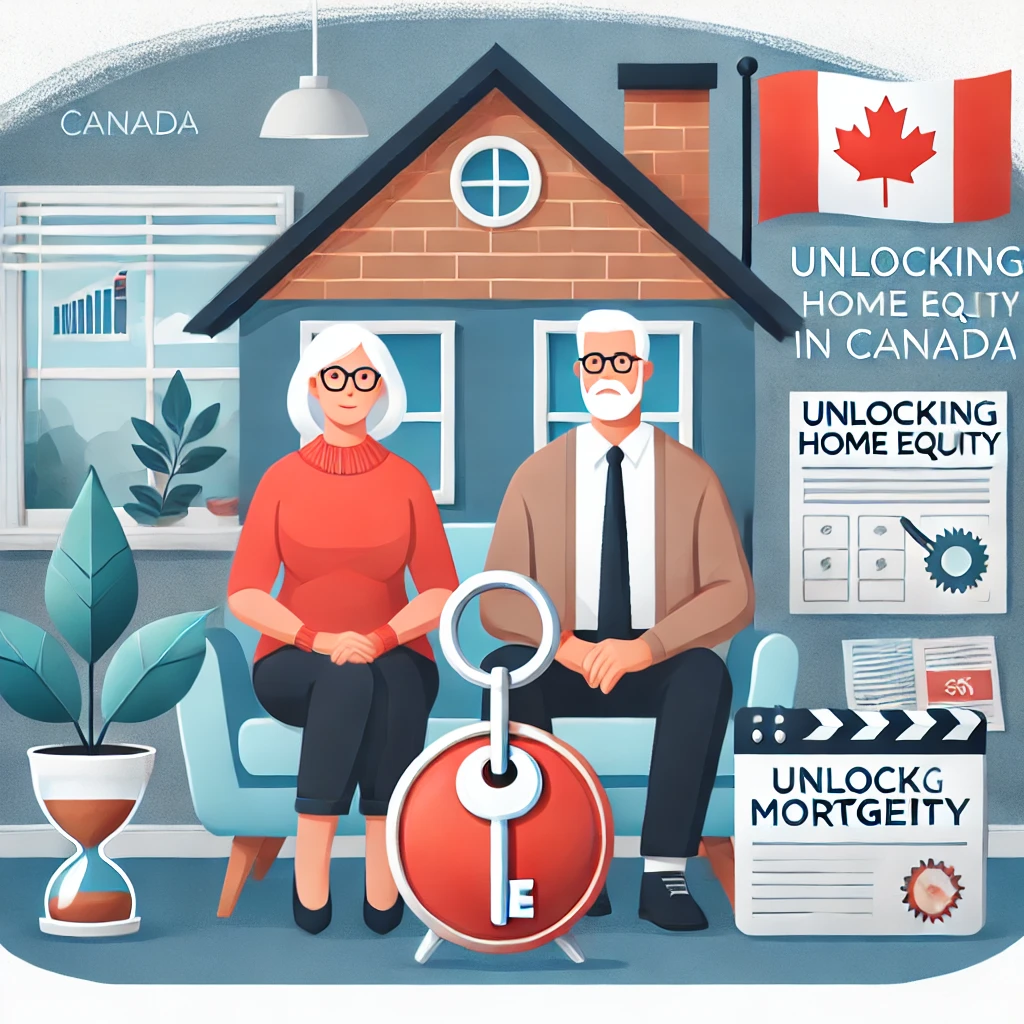Reverse Mortgage Rates: Find the Best Rates
The Reverse Mortgage for Canadians 55 and over
Thousands of 55+ Canadians are beginning to realize just how wealthy they are, when they consider the equity they’ve built in their homes
- Access up to 55% of your home value in tax-free cash!
- Keep the home you love
- No monthly mortgage payments
WE’RE HERE TO HELP

What Are Reverse Mortgage Rates?
Reverse mortgage rates are the interest rates that apply to the amount you borrow against your home’s equity. Unlike a traditional mortgage, you are not required to make monthly payments. Instead, the loan balance, along with accumulated interest, is repaid when you sell your home or move out permanently. Reverse mortgage interest rates are generally higher than traditional mortgage rates because the lender does not receive payment until the loan matures.
Current Reverse Mortgage Rates in Canada
- Below is a summary of the current reverse mortgage rates in Canada for 2024. These rates can vary based on factors like the loan amount, your location, and whether you choose a fixed or variable rate.
| Lender | Fixed Rate | Variable Rate | Typical Range (APR) |
|---|---|---|---|
| HomeEquity Bank (CHIP) | 7.25% – 8.99% | 6.75% – 8.49% | 7.5% – 10.0% |
| Equitable Bank | 7.45% – 9.15% | 6.95% – 8.65% | 7.7% – 10.3% |
Factors That Affect Reverse Mortgage Rates
Reverse mortgage rates can fluctuate based on several key factors:
Market Conditions: Interest rates for reverse mortgages follow the broader lending environment in Canada, which means rates will adjust in line with the Bank of Canada’s rates.
Loan Amount: The amount you choose to borrow can affect the interest rate. Borrowing higher amounts might come with slightly lower interest rates.
Fixed vs. Variable Rates: Fixed-rate reverse mortgages offer stability and predictability, while variable rates fluctuate with market conditions, potentially offering lower rates initially but with more risk of rate increases.
Lender: Different lenders, such as HomeEquity Bank (CHIP) and Equitable Bank, offer varying rates depending on their specific terms and conditions.
Age and Home Value: The older you are and the higher the value of your home, the more you may qualify to borrow, which can influence the rates offered to you.
For detailed information, consult the Government of Canada’s reverse mortgage guide.
Fixed vs. Variable Reverse Mortgage Rates
Fixed Rate Reverse Mortgages:
With a fixed rate, the interest rate stays the same throughout the term of your loan. This option is ideal for those who prefer stability and want to know exactly how much interest will accumulate over time. Fixed rates tend to be slightly higher than variable rates but provide the benefit of predictability.
Variable Rate Reverse Mortgages:
Variable rates fluctuate over time based on the prime lending rate in Canada. While variable rates may start lower, they carry the risk of increasing if market interest rates rise. This option may be suitable for homeowners who are comfortable with rate changes and are looking for potentially lower initial rates.
Comparing Reverse Mortgage Rates from Top Lenders
When comparing reverse mortgage rates, it’s essential to understand the differences between major Canadian lenders:
HomeEquity Bank (CHIP Reverse Mortgage)
- Rate Range: Fixed rates typically range from 7.25% to 8.99%, while variable rates are slightly lower, starting at 6.75%.
- Advantages: CHIP is Canada’s largest reverse mortgage provider, offering flexible payment options and a no-negative-equity guarantee.
Equitable Bank Reverse Mortgage
- Rate Range: Fixed rates range from 7.45% to 9.15%, while variable rates start at 6.95%.
- Advantages: Equitable Bank is known for competitive rates and offering flexibility for borrowers to choose between fixed or variable options.
How Are Reverse Mortgage Rates Calculated?
Reverse mortgage rates are calculated based on a combination of factors:
- Loan Amount: The more equity you borrow, the more interest will accrue over time.
- Term Length: While you don’t make monthly payments, the term of the reverse mortgage affects the rate applied. The longer the term, the more interest accrues.
- Compounding Interest: Interest is calculated daily and compounded semi-annually for fixed-rate loans or monthly for variable-rate loans. This means that over time, the interest accumulates on the interest already added to the loan.
To stay informed on mortgage rate trends, visit the Bank of Canada’s website.
You can also check the latest reverse mortgage rates by visiting one of Canada’s top rate comparison sites, Rates4u.
Why Are Reverse Mortgage Rates Higher Than Traditional Mortgage Rates?
Reverse mortgage rates are typically higher than conventional mortgage rates because lenders don’t receive regular payments on the loan. This creates more risk for the lender, as the loan balance isn’t repaid until the homeowner sells the property, moves, or passes away. To offset this risk, reverse mortgage rates tend to be 1.5% to 2% higher than traditional mortgage rates.
Get An Estimate
See How Much You Can Borrow Today!

Reverse Mortgage FAQs
You can access up to 55% of your home’s appraised value, depending on your age, home value, and location.
No, the money you receive is tax-free and does not affect your Old Age Security (OAS) or Guaranteed Income Supplement (GIS).
No, you keep ownership as long as property taxes, home maintenance, and insurance are kept up to date.
You can access up to 55% of your home’s value, depending on factors like your age and home value.
No, reverse mortgage payments are tax-free, and they won’t impact your Old Age Security (OAS) or Guaranteed Income Supplement (GIS).
Expect costs like appraisal fees, legal fees, and administrative charges, which vary by lender.
Yes, you can sell your home at any time, but the reverse mortgage balance must be repaid from the proceeds.
Yes, most lenders allow early repayment, though penalties may apply depending on the contract terms.
Best Reverse Mortgage Rates Canada
Reverse Mortgage Rate Comparison: Is a Reverse Mortgage Right for You?
Comparing reverse mortgage rates with other financial products is an essential step to ensuring a reverse mortgage is the best fit for your financial goals.
| Product | Reverse Mortgage | Home Equity Line of Credit (HELOC) | Personal Loan |
|---|---|---|---|
| Interest Rates | 7% – 10% | 4% – 7% | 6% – 12% |
| Monthly Payments | None | Required | Required |
| Tax-Free Cash | Yes | No | No |
| Repayment Terms | When home is sold | Monthly repayments | Monthly repayments |
| Impact on Government Benefits | No impact | No impact | May affect eligibility |
How Is Interest Calculated on a Reverse Mortgage?
Interest is only charged on the amount you borrow, not the maximum amount available. It accrues daily and is compounded semi-annually for fixed rates or monthly for variable rates.
Example Calculation
- Home Value: $500,000
- Borrowed Amount: $100,000
- Interest Rate: 4.89% annually
Steps:
- Daily Interest Rate: 4.89% ÷ 365 = 0.0134% per day
- Daily Interest Charge: $100,000 × 0.0134% = $13.40
- Interest Over Six Months: $13.40 × 180 days = $2,412
- New Balance After Six Months: $100,000 + $2,412 = $102,412
- Compound Interest: Interest now calculated on $102,412
After one year, the total interest accrued would be approximately $4,900, and the loan balance would be around $104,900.
How is compound interest applied on Reverse Mortgages?
After six months, compound interest takes effect, meaning the interest is charged not just on the principal loan but on the accumulated interest. For example:
- Second six-month daily interest: $102,444 x 0.01358% = $13.91/day.
- Interest for another six months: $13.91/day x 180 days = $2,504.
Adding this to the outstanding balance of $102,444 gives a new loan balance of $104,948.
Thus, after one year, the total interest would amount to $4,948 on a $100,000 reverse mortgage with a 4.89% interest rate.
Get An Estimate
See How Much You Can Borrow Today!

Contact Us to Find the Best Reverse Mortgage Rates
Looking for the best reverse mortgage rates in Canada? We can help you compare rates from top lenders and find the best option for your financial needs. Contact us today for a free consultation and see how much you can unlock from your home’s equity.
Citadel Mortgages is one of Canada’s leading brokerages specializing in reverse mortgages. Visit Citadel Mortgages to learn more today.
Best Reverse Mortgage Rates
Reverse Mortgage Explainer Video
Unlock the value in your home and turn it to cash to help you enjoy life on your terms. Inquire about your reverse mortgage today.
Get Your Estimate
Reverse Mortgage Calculator: Estimate How Much You Can Borrow
Are you curious about how much you could access from your home equity with a reverse mortgage? Use our simple and intuitive Reverse Mortgage Calculator to get an estimate of how much you could borrow based on your home’s current value, your age, and other factors. This tool can help you better understand your financial options and decide whether a reverse mortgage is right for you.
How the Reverse Mortgage Calculator Works:
- Enter Your Home’s Current Value: The estimated market value of your property.
- Select Your Age: The older you are, the more you can borrow. If you have a spouse, include both ages.
- Choose Your Location: Property location affects your borrowing power, as home values vary by region.
- See Your Estimated Loan Amount: The calculator will provide a projection of the maximum amount you may qualify for.
Reverse Mortgage Calculator Bloom
See How Much You Can Borrow Today!





